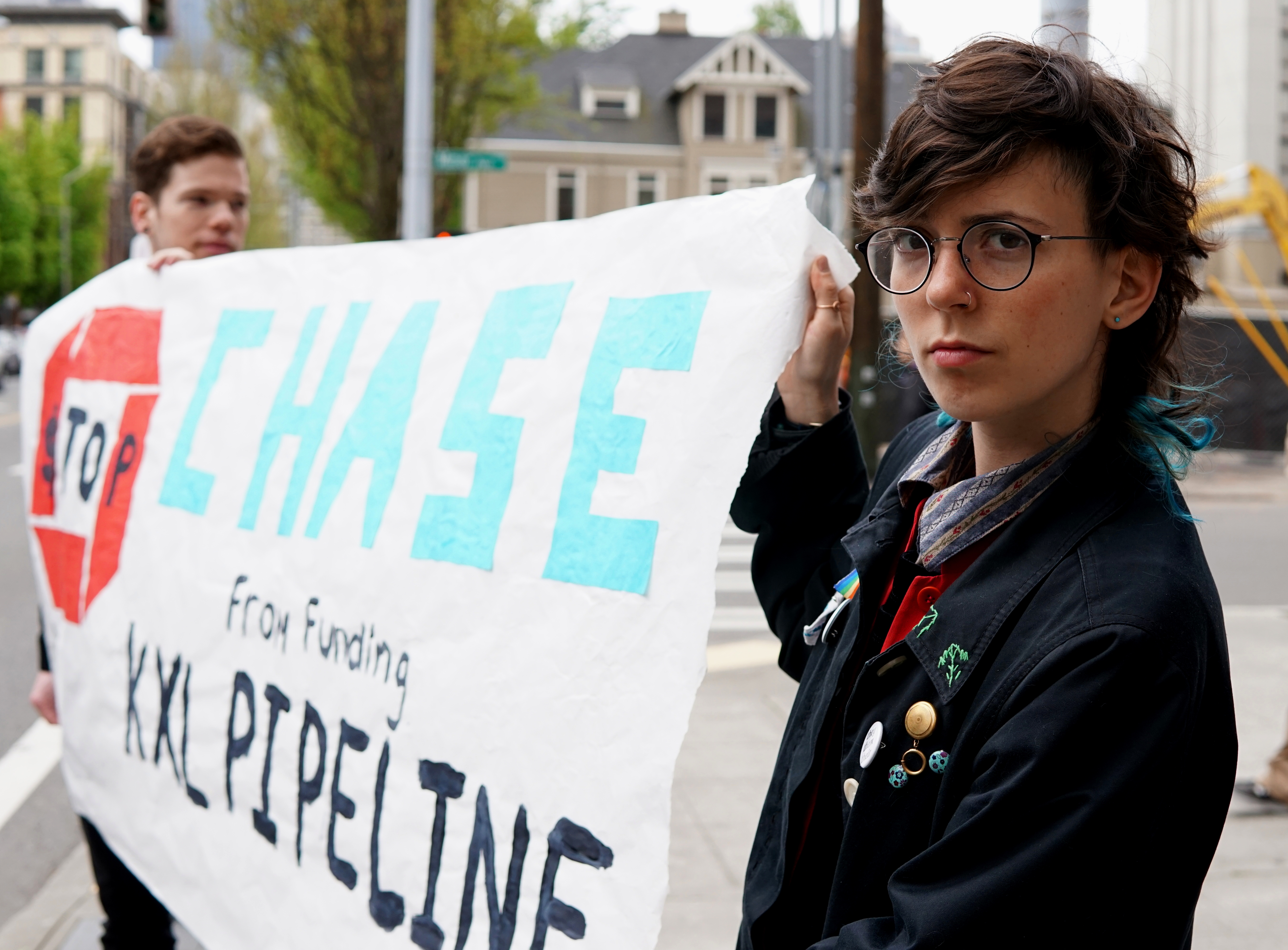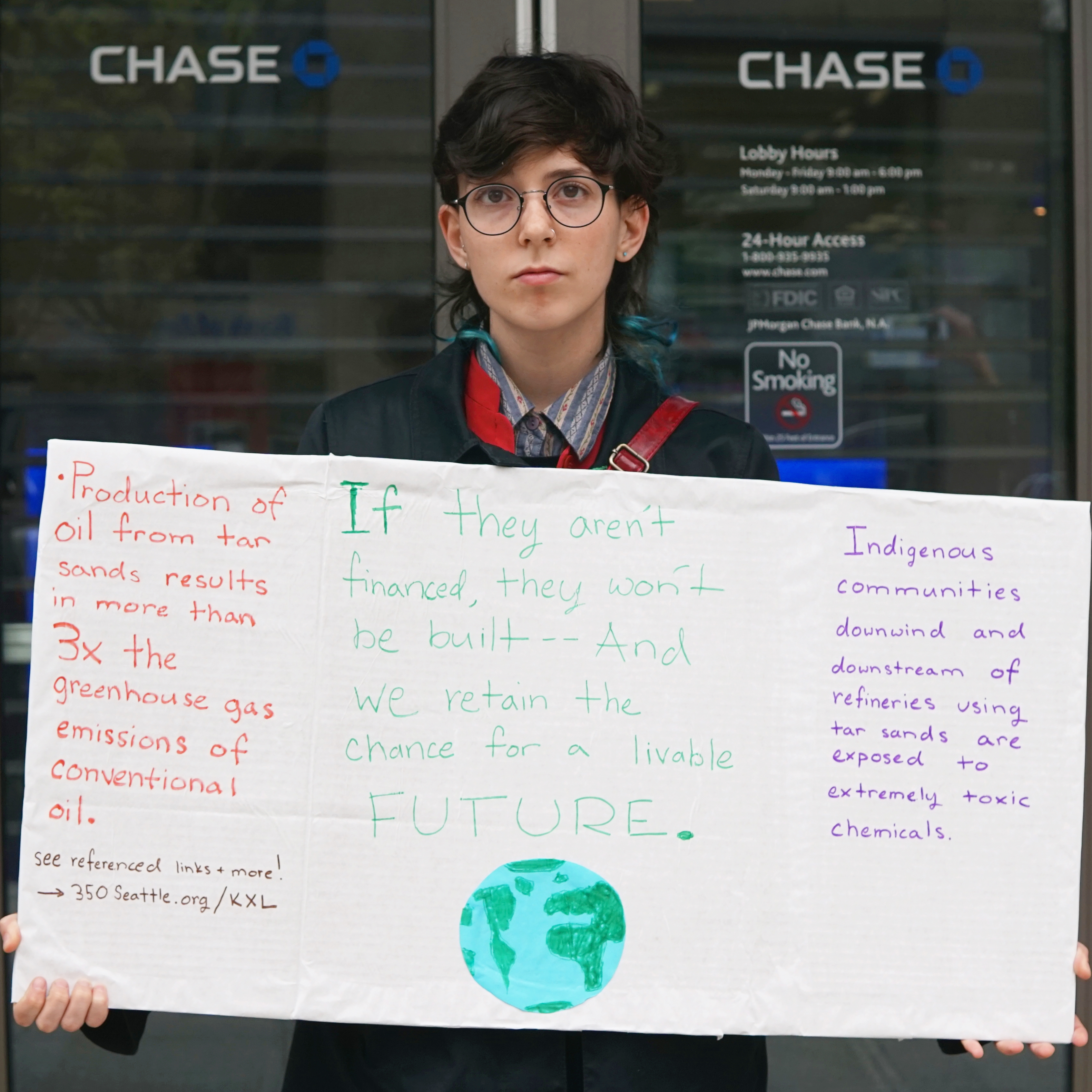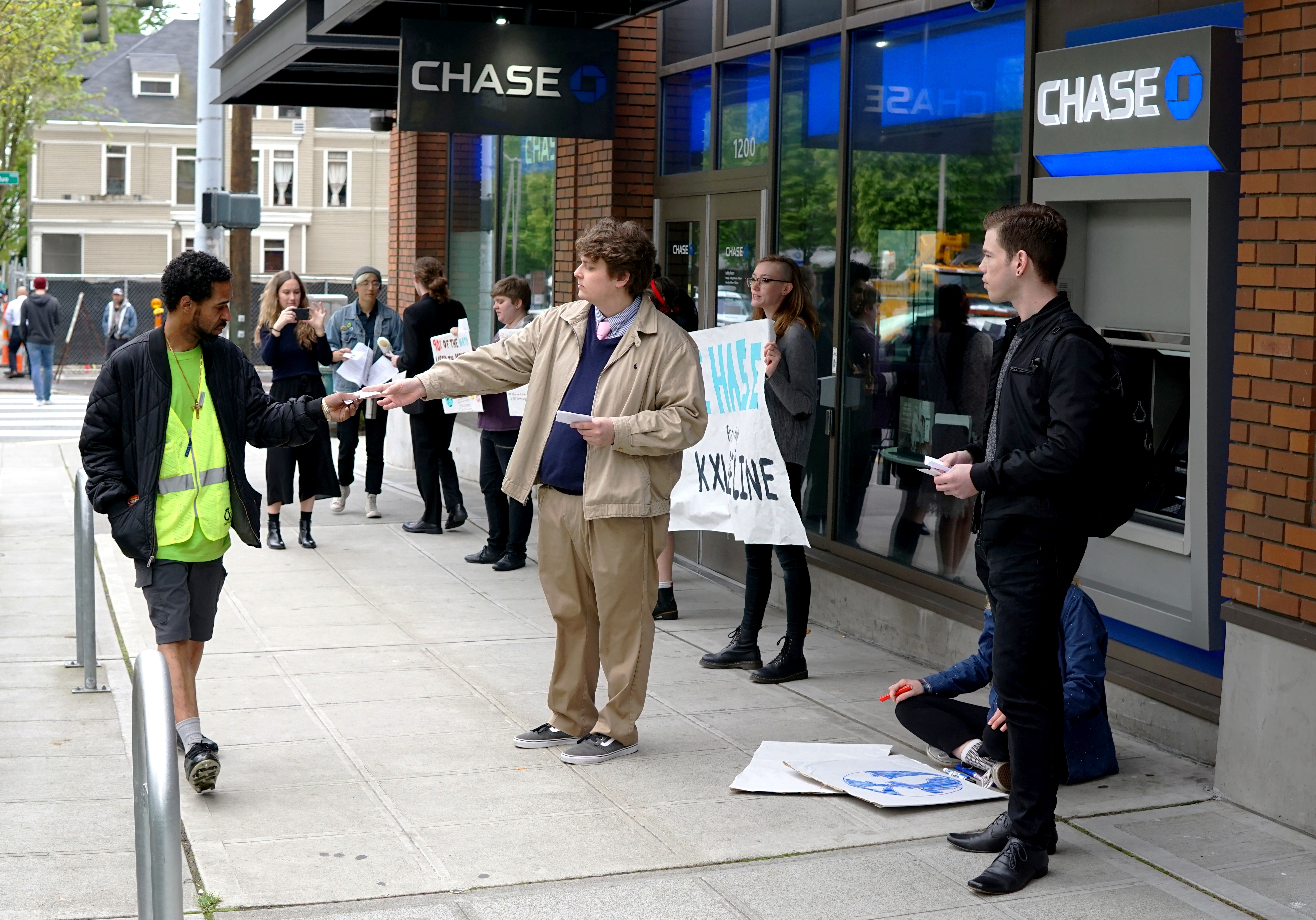It was a typical Monday morning at the Chase Bank on Marion and Madison Street. Cars drove by as customers went in and out of the bank to deposit checks, withdraw money, refinance loans…It wasn’t until Kiran Oommen showed up—with a group of Seattle University students in tow—that this harmony was disrupted.

Sierra Ganellen (right) holds a sign protesting Chase Bank’s funding of the Keystone Pipeline.
These students were part of Seattle U’s unofficial Anarchists Club, and they were there to protest Chase Bank’s funding of the Keystone Pipeline, an oil system that will transport crude oil from the Western Canadian Sedimentary Basin in Alberta, Canada to refineries in Illinois and Texas once completed.
At the same time, environmental activists across Seattle occupied and closed 12 different Chase Bank locations in Fremont, Wedgwood, Northgate, the U District, Queen Anne, the Central District, downtown and Capitol Hill to protest the Keystone XL pipeline.
The Seattle Police Department reported 26 arrests, including a candidate for city council. A climate justice group called 350 Seattle organized the citywide effort.
It was a quarter past eleven o’clock when the students showed up at the bank just up the hill from campus. They were all holding flyers, signs and hand drawn posters.
Sierra Ganellen, a second-year sociology major at Seattle U, was the first to arrive. They marched through the front door and demanded that their funds be withdrawn immediately from the bank, but they were denied this request and was promptly guided outside by a security guard who then locked the door and lowered the security barrier.
The bank employees, ever present and ready to provide service a minute ago, were nowhere to be seen. The bank was deserted. Unperturbed, the students hunkered down outside and began to unfurl their posters and hand out pamphlets to people walking by. “To show them that I don’t stand for this, that they will lose customers and that this is a potential consequence for their investment in fossil fuels,” Ganellen said, explaining why they asked to withdraw their funds. “I want to scare them.”
In 2015, former president Barack Obama rejected the fourth phase of the plan, known as Keystone XL, which would allow the pipeline to pass through Montana, South Dakota, Nebraska and parts of Kansas. On January 24, 2017, President Donald Trump signed presidential memoranda meant to revive Keystone XL and the Dakota Access pipeline in addition to expediting the environmental review process.
The pipeline, which was commissioned in 2010, is owned solely by the TransCanada Corporation and quickly became a symbol of the growing environmental movement and fight against climate change and the fossil fuel industry.
The students had many interactions with pedestrians, drivers and other passersby while they occupied the space in front of the bank. Some onlookers stopped and shook their hands, others shrugged them off. Some honked in support, others in annoyance. In either case, Oommen said, the point was to demand the bank’s divestment from the fossil fuel industry.
Oommen explained, standing just a few feet away from the entrance to the bank, that anarchism has a bad rep. His developing club, the Anarchists of Seattle U, is a direct- action team made up of students from an array of different political beliefs, not all of which strictly prescribe to the principles of anarchism. Direct action is rooted in anarchy, Oommen explained, and he hopes that his efforts will override the negative stereotype forced upon members of his club to demonstrate, ultimately, that people can take care of themselves and look out for each other.
“[We are] standing in solidarity with the indigenous and low income communities that are going to be directly affected by the pipeline,” Oommen said. “We are reaching out to the bank to appeal to their any sense of dignity.”
As the students held their ground— chanting their chants and singing their songs—a group of four suited men walked by. One of the students offered them a pamphlet, asking whether they knew about the relationship between Chase Bank and the Keystone pipeline.
“I’m totally in favor of the pipeline,” the suited man said in response. His colleagues chuckled as they walked away.
Minutes later a woman started a conversation with the students, asking with a clear, energetic voice, “How can I help?”
Oommen and the others were delighted. They asked the woman if she has a bank account with Chase, to which she replied, “Hell no!”
“On the smallest level, I hope that people start to think about it and eventually do some of their own research,” Ganellen said, explaining what they hoped people would take away from their demonstration. “A little listening would be nice.”
Nick may be reached at
[email protected]














